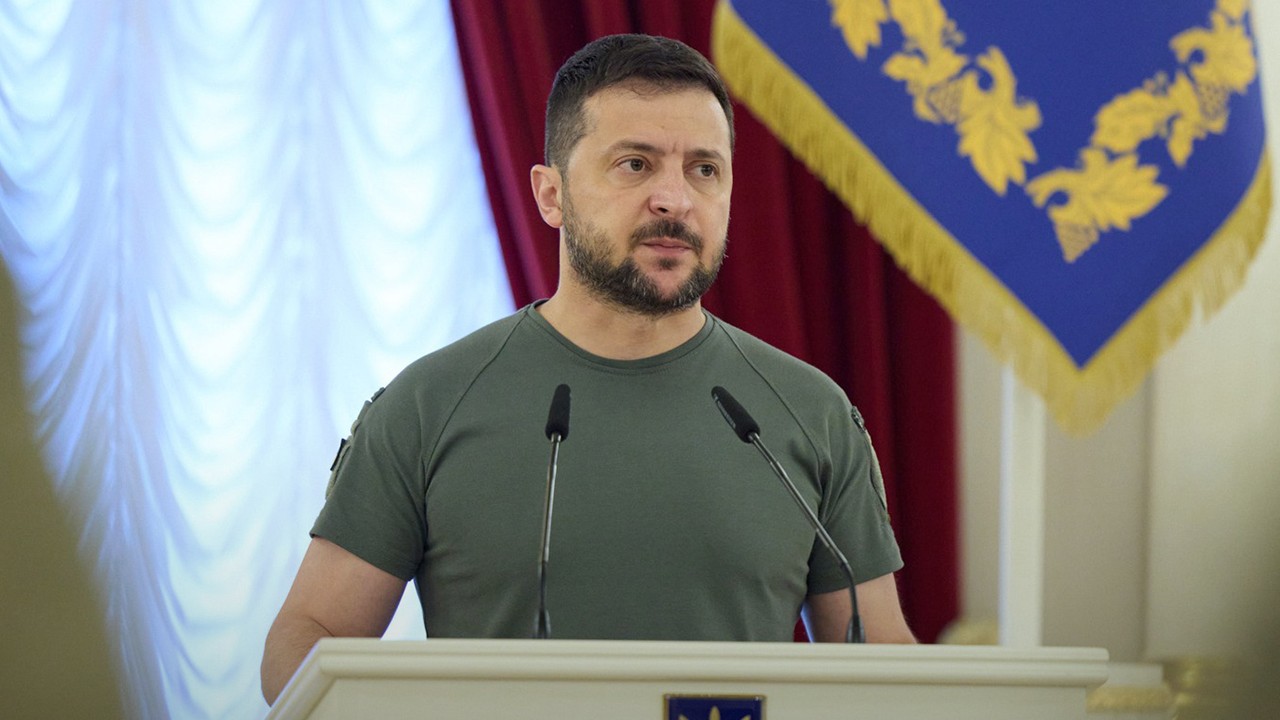
Russia claims win in Ukraine referendums, paving way for annexation
- Unprecedented annexation of four Ukraine territories likely to begin in coming days
- It follows so-called referendums that Kyiv and allies have denounced as illegitimate
Russian-installed officials in occupied regions of Ukraine said on Wednesday they would ask President Vladimir Putin to incorporate them into Russia, a day after claiming that their residents overwhelmingly supported such a move in Kremlin-orchestrated votes widely viewed as illegitimate.
The preordained outcome sets the stage for a dangerous new phase in Russia’s seven-month war, with the Kremlin threatening to throw more troops into the battle and potentially use nuclear weapons.
The referendums asking residents whether they wanted the four occupied southern and eastern Ukraine regions to be incorporated into Russia began September 23, often with armed officials going door-to-door collecting votes.
Pro-Moscow officials in the eastern Luhansk region and the partially occupied southern region of Zaporizhzhia said they would make the request on Wednesday. The Russian-backed administration of the neighbouring occupied Kherson region said such a request to Putin will be made “in the coming days”.
Kyiv and its Western allies dismissed the votes as sham. Ukrainian President Volodymyr Zelensky, speaking by video link Tuesday to the UN Security Council, said that “any annexation in the modern world is a crime, a crime against all states that consider the inviolability of border to be vital for themselves”.
Separatist officials in the Donetsk region, large swaths of which still remain under Ukrainian control, are also expected to follow suit.
Russian exodus grows amid fears Putin may restrict borders
According to Russian-installed election officials, 93 per cent of the ballots cast in the Zaporizhzhia region supported annexation, as did 87 per cent in the Kherson region, 98 per cent in the Luhansk region and 99 per cent in Donetsk.
“Saving people in the territories where this referendum is taking place … is the focus of the attention of our entire society and of the entire country,” Russian President Vladimir Putin said earlier during a televised meeting with officials.
His spokesman Dmitry Peskov said the votes would have “radical” legal implications and that the so-called referendums “will also have consequences for security”, referring to Moscow’s threats to use nuclear weapons to defend its territory.
Russian forces this month have suffered serious setbacks in Ukraine’s east and south, which observers say pushed Putin to rush ahead with the vote to cement Moscow’s authority there.
“I want to remind you – the deaf who hear only themselves: Russia has the right to use nuclear weapons if necessary,” former leader Dmitry Medvedev – a Putin ally who is now deputy chairman of Russia’s security council – said on social media Tuesday.
Pentagon spokesman Brigadier General Patrick Ryder said the United States was taking the reiterated threat “seriously” but had seen nothing to cause Washington to change its nuclear posture.
Nato chief Jens Stoltenberg said that “Russia must know that the nuclear war cannot be won and must never be fought.”
The four Russian-occupied regions of Ukraine announced that they would hold the elections just days before voting began last Friday.
Together, they form a crucial land connection for the Kremlin between Russia and the Crimean peninsula, which Moscow annexed in 2014 and is otherwise only connected to the mainland by bridge.
US Secretary of State Antony Blinken vowed that the West would never recognise Russian annexations of the territories, threatening Moscow with “additional swift and severe costs” for its “diabolical scheme”.
French Foreign Minister Catherine Colonna, in Kyiv for a surprise visit to meet Zelensky, called the polls a “masquerade” that would trigger further Western sanctions.

At the United Nations, top official Rosemary DiCarlo told a meeting of the Security Council the body “remains fully committed” to Ukraine’s territorial integrity “within its internationally recognised borders”.
The United States intends to submit a resolution urging UN member states “not to recognise any altered status of Ukraine and obligating Russia to withdraw its troops from Ukraine,” said US envoy Linda Thomas-Greenfield.
However, there is no chance of the Security Council reaching a united stance on the annexation move.
Vassily Nebenzia, Russia’s UN ambassador, made clear Russia would wield its Security Council veto again, criticising the move as “temper tantrums of the Western delegations”.
“The referendums were conducted exclusively transparently, with upholding of all the electoral norms,” Nebenzia argued, adding that the West’s only aim was to “weaken and bleed dry Russia as much as possible”.

The so-called referendums follow a pattern that Moscow utilised in Crimea after nationwide street demonstrations saw Ukraine’s Kremlin-friendly president ousted.
As in Crimea, observers saw the outcome as a foregone conclusion. Election officials brought ballot boxes door-to-door, in many cases accompanied by armed Russian forces.
According to Russian state media, the next step is for Russia’s parliament, the State Duma, to approve an annexation bill formally incorporating the four regions into Russian territory. This could happen as early as Wednesday and would be followed by Russian upper house approval.
Putin is then expected on Friday to formally declare the Ukrainian regions part of Russia, according to Russian news agencies.
Associated Press and Agence France-Presse

